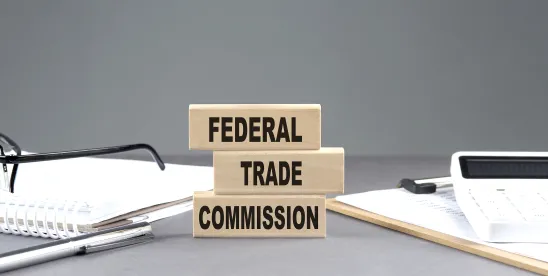Go-To Guide:
- The Federal Trade Commission (FTC)’s 2023 annual report highlights significant enforcement actions and educational efforts, focusing on consumer protection under the Truth in Lending Act (TILA), Consumer Leasing Act (CLA), and Electronic Fund Transfer Act (EFTA).
- The agency targeted deceptive practices in auto financing, taking enforcement actions against companies allegedly using misleading tactics and junk fees, resulting in substantial consumer restitution.
- New rulemakings, including the Comprehensive Automotive Rules for Sales (CARS Rule), aim to save consumers billions annually by enhancing transparency in car sales and eliminating hidden fees, while educational campaigns provide vital insights into financial pitfalls and protections.
On May 28, 2024, the FTC released its annual report to the Consumer Financial Protection Bureau (CFPB), detailing the agency’s enforcement actions and educational efforts throughout 2023. This report, focusing on TILA and Regulation Z, CLA and Regulation M, and EFTA and Regulation E, outlines actions in various sectors, including automobile financing and electronic fund transfers. The report also summarizes the agency’s efforts to combat deceptive fees.
While the Dodd-Frank Act provided the CFPB with rulemaking and enforcement authority over major consumer financial laws and regulations, the FTC retained authority to enforce TILA, Regulation Z, CLA, Regulation M, EFTA, Regulation E, and applicable CFPB rules within its jurisdiction.
Deceptive Practices in Auto Financing
The FTC has been addressing deceptive practices in auto financing, particularly by dealership owners. For example, in 2023, the FTC continued its litigation against a company and its owner for alleged FTC Act and TILA violations. The company used deceptive mailers, falsely claiming affiliation with government COVID-19 stimulus programs and misleading consumers about winning valuable prizes to lure them to auto sale events, according to the FTC.
In collaboration with the state of Illinois, the FTC also took action against a large multi-state auto dealer group, which was found guilty of adding illegal junk fees to consumer bills and misleading them with advertisements. In 2023, the FTC and Illinois mailed over $857,000 in checks to 37,034 affected consumers, following a previous payout of over $8.8 million in 2022.
New Rulemakings and Policy Developments
In 2023, the FTC finalized the new CARS Rule, which addresses deceptive tactics in car sales, financing, and leasing. The CARS Rule aims to save consumers over $3.4 billion annually by prohibiting false statements about pricing and costs, ensuring transparency about optional add-ons, and requiring clear consumer consent for all charges.
The FTC also proposed a new rule to eliminate junk fees in various transactions, discussed in an October 2023 GT Alert. This proposed rule aims to tackle hidden junk fees that affect fair competition and burden consumers. Additionally, the Commission paid special attention to issues affecting American Indian, Alaska Native populations, and military personnel, launching targeted enforcement and educational initiatives.
Electronic Fund Transfers
The FTC’s efforts around electronic fund transfers included enforcement actions against deceptive practices. In one case, the FTC addressed misleading “risk-free” trial offers that led to unauthorized charges. The Commission mailed a second round of checks totaling over $1.3 million to affected consumers in 2023.
Moreover, the FTC proposed updates to the Negative Option Rule, which GT reported on in April 2023, aiming to protect consumers from unfair practices related to automatic renewals and hidden charges. The proposed updates would require companies to provide simple and clear cancellation methods for subscriptions and recurring payments. The Commission also issued a consumer alert and business guidance on the rule.
In alignment with Regulation E, which implements EFTA, the FTC pursued violations related to unauthorized electronic fund transfers. This included cases where companies allegedly enrolled consumers into recurring payments without proper consent.
Takeaways
Alongside rulemaking, enforcement actions, and specialized task forces, the FTC prioritized comprehensive consumer and business education efforts in 2023. These initiatives encompassed promotional campaigns tied to regulatory changes and the publication of informative articles. Topics covered included strategies for handling auto trade-ins and negative equity, guidance on accessing mortgage assistance programs, insights into managing payday and title loans responsibly, and warnings about the potential risks associated with payment apps and wire transfers. By equipping stakeholders with this knowledge, the FTC aims to foster informed decision-making and enhance consumer protection in financial transactions.





 />i
/>i

